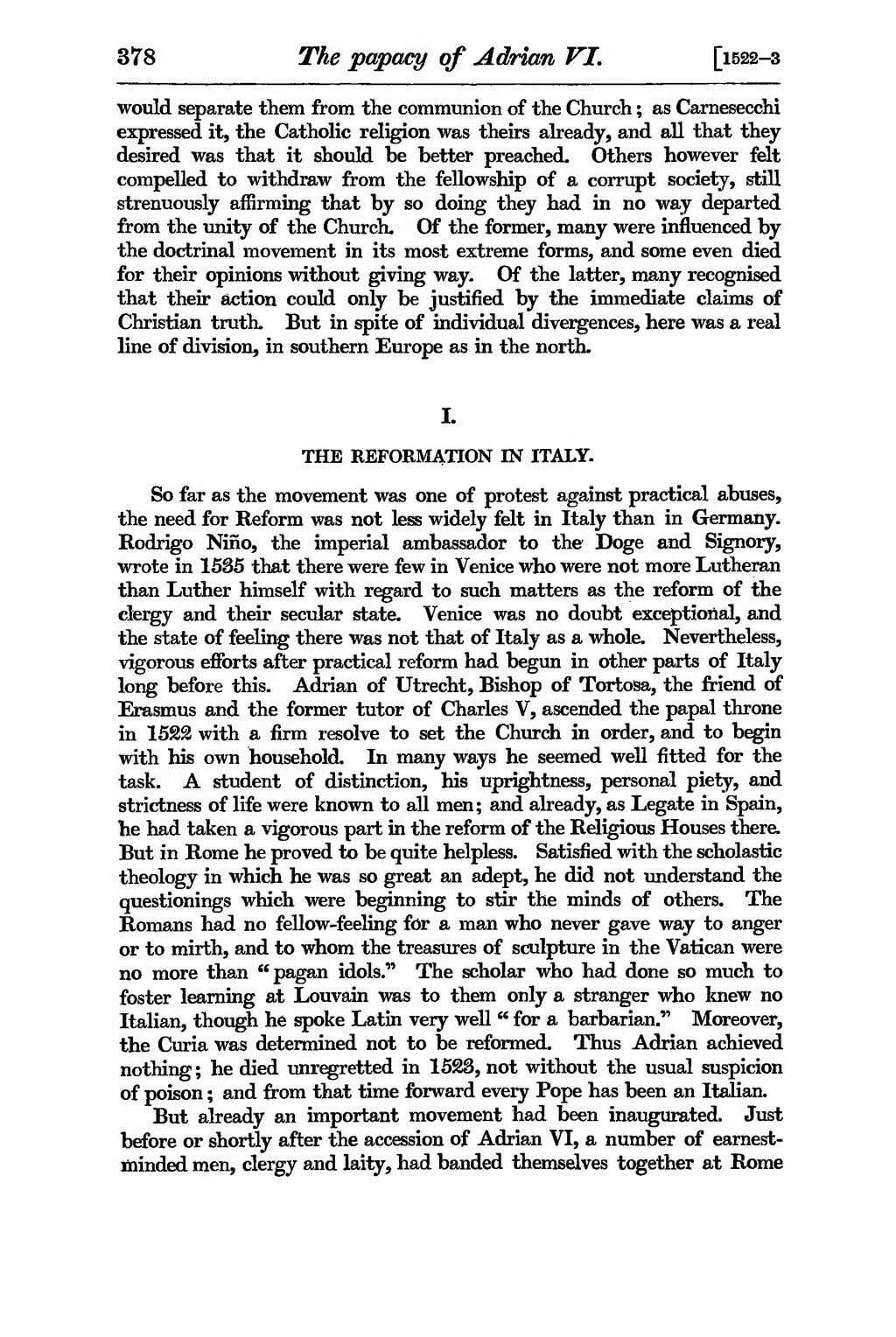would separate them from the communion of the Church; as Carnesecchi expressed it, the Catholic religion was theirs already, and all that they desired was that it should be better preached. Others however felt compelled to withdraw from the fellowship of a corrupt society, still strenuously affirming that by so doing they had in no way departed from the unity of the Church. Of the former, many were influenced by the doctrinal movement in its most extreme forms, and some even died for their opinions without giving way. Of the latter, many recognised that their action could only be justifie'd by the immediate claims of Christian truth. But in spite of individual divergences, here was a real line of division, in southern Europe as in the north.
I. THE REFORMATION IN ITALY.
So far as the movement was one of protest against practical abuses, the need for Reform was not less widely felt in Italy than in Germany. Rodrigo Nino, the imperial ambassador to the Doge and Signory, wrote in 1535 that there were few in Venice who were not more Lutheran than Luther himself with regard to such matters as the reform of the clergy and their secular state. Venice was no doubt exceptional, and the state of feeling there was not that of Italy as a whole. Nevertheless, vigorous efforts after practical reform had begun in other parts of Italy long before this. Adrian of Utrecht, Bishop of Tortosa, the friend of Erasmus and the former tutor of Charles V, ascended the papal throne in 1522 with a firm resolve to set the Church in order, and to begin with his own household. In many ways he seemed well fitted for the task. A student of distinction, his uprightness, personal piety, and strictness of life were known to all men; and already, as Legate in Spain, he had taken a vigorous part in the reform of the Religious Houses there. But in Rome he proved to be quite helpless. Satisfied with the scholastic theology in which he was so great an adept, he did not understand the questionings which were beginning to stir the minds of others. The Romans had no fellow-feeling for a man who never gave way to anger or to mirth, and to whom the treasures of sculpture in the Vatican were no more than "pagan idols." The scholar who had done so much to foster learning at Louvain was to them only a stranger who knew no Italian, though he spoke Latin very well " for a barbarian." Moreover, the Curia was determined not to be reformed. Thus Adrian achieved nothing; he died unregretted in 1523, not without the usual suspicion of poison; and from that time forward every Pope has been an Italian.
But already an important movement had been inaugurated. Just before or shortly after the accession of Adrian VI, a number of earnest-minded men, clergy and laity, had banded themselves together at Rome in the famous "
